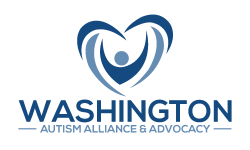What I specialize in:
I am a Licensed Clinical Psychologist based in Issaquah, WA. I specialize in the treatment of:
* Anxiety Disorders (panic disorder, phobias, generalized anxiety, social phobia)
* Obsessive Compulsive Disorder (OCD)
* Impulse Control Disorders (trichotillomania, skin picking)
* Attention Deficit Hyperactivity Disorder (ADHD)
I use behavior therapy (BT) / cognitive behavior therapy (CBT) in intensive outpatient and weekly outpatient treatment.
My Treatment Philosophy
Behavior therapy is the treatment of choice for anxiety, OCD, impulse control disorders, and ADHD. Scientific research has demonstrated the efficacy of behavioral therapy again and again. I believe that behavior therapy is powerful and effective because it is based on strict scientific principles.
In behavioral therapy, I first work to understand that problem. Then I create a treatment plan that involves directly treating the core of the problem. Typical treatment takes 6-8 weeks. It is as if I am a coach and the client is an athlete. I help the client decide what they would like to achieve and then teach them the skills to attain their
goals. The aim is reduce anxiety, create comfort, and stop repetitive and unwanted behavior. Changing behavior also allows other emotional concerns to be clearer so they can be addressed. Treating the problem efficiently brings short and long-term relief. I have found clients to be highly satisfied with this approach and to experience significant improvement.
Often I will partner with a treatment team involving a psychiatrist or attending physician. This allows us to work together if medication is needed. Some people find relief with behavior therapy alone. Some people combine
behavior therapy with medication and find the combination to be the most effective.
How I treat
OCD is specifically treated with "Exposure and Response Prevention (ERP)." ERP involves developing a hierarchy of obsessions and compulsions and gradually confronting these symptoms in order to stop them.
A person is exposed to the cues or triggers that elicit obsessions and is then prevented from engaging in the related rituals. Although rituals serve to temporarily reduce anxiety, they actually increase anxiety in the long
run. Therefore, if someone stops their rituals, they can face their fears. This allows the anxiety and obsessions to go away. Also, the cues will stop producing obsessions. Many people do rituals in their head. These are called cognitive rituals. These can also be successfully treated with ERP.
Other anxiety disorders are often treated with cue exposure as well. People are exposed to the cues that are
associated with anxiety and avoidance until their anxiety subsides. For example, a person afraid of heights will learn to feel comfortable on the 3rd floor, the 4th floor, the 5th floor and continue until they graduate on top of the space needle. A person suffering with social phobia is often afraid of embarrassment and humiliation. If they choose,
they can participate in social activities until they feel comfortable and confident. Panic disorder often involves a fear of fear (bodily sensations related to anxiety). People with panic disorder learn to be less fearful of bodily cues and of feeling trapped. People with panic disorder with agoraphobia often avoid situations associated with panic attacks. Behavior therapy helps agoraphobics gradually learn to be comfortable in these situations. Anxiety disorder treatment often includes relaxation and breathing training, stress management, and skills training such as
assertiveness.
Impulse control disorders are treated with habit reversal, cues exposure, impulse control training and contingency
management. Cue exposure in this case involves breaking the connection between situations that have been paired with impulsive behavior and the excessive behavior. This reduces the urge to be impulsive in high risk
situations.
The treatment for ADHD involves behavioral management. Attention is improved by using immediate external
contingencies to control attentive and on task behavior. Impulse control is improved by arranging an environment that supports positive long term consequences. Treatment often includes coordination with the school to obtain
appropriate accommodations and working with educational resources.
425-681-3760

